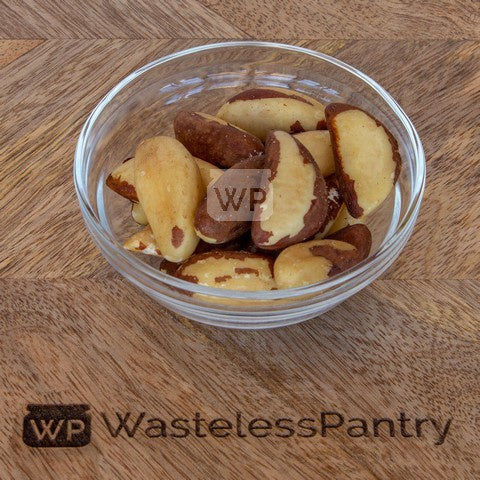The Environmental Impact Of The JuJu Cup
- Shopmundaring Wastelesspantry

- Jan 25, 2024
- 2 min read
In recent years, there has been a growing awareness of the environmental impact of disposable menstrual products. From tampons to pads, the environmental toll of these single-use items has prompted many individuals to seek more sustainable alternatives. One such solution gaining popularity is the JuJu Cup, a reusable menstrual cup designed to provide an eco-friendly and cost-effective option for menstruating individuals. This article explores the environmental impact of the JuJu Cup and how it contributes to a greener and more sustainable approach to menstruation.

Reducing Waste
Traditional menstrual products contribute significantly to environmental pollution due to their disposability. Tampons and pads, often made with a combination of plastic and other synthetic materials, can take years to decompose. In contrast, the JuJu Cup is made from medical-grade silicone, rubber, or latex, and its reusable nature means it generates substantially less waste over time.
Lifetime Durability
The JuJu Cup is designed to be durable and can last for several years with proper care. This longevity eliminates the need for continuous production, reducing the overall carbon footprint associated with manufacturing disposable alternatives. A single JuJu Cup has the potential to replace hundreds or even thousands of disposable menstrual products during its lifespan.
Energy-Efficient Manufacturing
The production of disposable menstrual products requires significant energy resources, contributing to greenhouse gas emissions. JuJu Cups are manufactured with a focus on sustainability, employing energy-efficient processes and utilizing materials with a lower environmental impact. This commitment to eco-friendly manufacturing further enhances the overall environmental profile of the product.
Decreased Water Footprint
Unlike disposable products that require vast amounts of water for the production of raw materials and manufacturing processes, the JuJu Cup has a considerably smaller water footprint. With its reusable design, the cup reduces the need for continuous resource extraction and consumption, making it a more sustainable choice in terms of water usage.
Packaging Efficiency
The packaging of disposable menstrual products often contributes to environmental waste. In contrast, the packaging of the JuJu Cup is designed with minimalism and sustainability in mind. Many JuJu Cups come in recyclable or reusable packaging, further reducing the environmental impact associated with menstrual product packaging.
Promoting Sustainable Practices
Beyond its direct environmental impact, the JuJu Cup encourages a shift towards sustainable menstrual practices. By choosing a reusable option, individuals contribute to the reduction of plastic waste and promote a more eco-conscious approach to personal hygiene.
Carbon Footprint Reduction
The production, packaging, and transportation of disposable menstrual products contribute to their overall carbon footprint. By choosing the JuJu Cup, which is reusable and requires less frequent replacement, individuals can significantly reduce their carbon footprint associated with menstrual care. This makes the JuJu Cup an environmentally conscious choice that aligns with a low-impact lifestyle.
Conclusion
The JuJu Cup emerges as a compelling solution for those seeking a more sustainable and environmentally friendly alternative to traditional disposable menstrual products. With its long lifespan, minimal environmental footprint in production, and reduced waste generation, the JuJu Cup represents a positive step towards fostering a more sustainable menstruation culture. As awareness grows about the environmental impact of daily choices, products like the JuJu Cup empower individuals to make informed decisions that align with their values and contribute to a healthier planet.



Comments